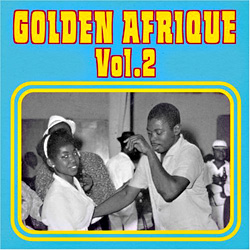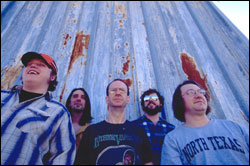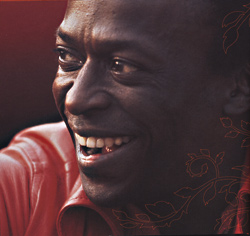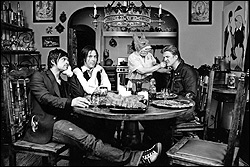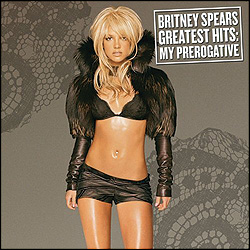Last year Americans finally discovered Congolese music. Trancey enough for club rats and New Agers both, the distorted thumb pianos and junkyard clatter of Konono No. 1’s Congotronics also rang with the resilience of streetwise postcolonials who’d tweaked cast-off technology to traditional expressive ends. After years of losing out to the blues affinities of West Africa’s snaky desert guitars, the communally independent spirit of South African mbanqua, and the defiant primitivism of Nigerian funk-rock, Central Africa finally made some noises that jibed with the peculiar demands of the Western imagination.
Maybe the elegant party music of Golden Afrique Vol. 2 (Network Medien, Germany) has just always been too classy for First World consumption. Its seamless rhythms contrast sharply with the urban yet dust-choked clamor of ’70s Bamako or Dakar spotlighted on Vol. 1. Voices here are robust, often Francophone, almost always male, their earthiness echoed by the are-those-in-tune? horn charts, their sweetness seconded by the soloing saxes’ caress of a sensual upper range. The guitars translate the open-ended flow of African tradition into a reverb-liquefied burble as weightless and intricate as the cymbal pulse that guides them. Soukous, rumba, whatever you call it—it’s nearly as aspirational as South Africa’s township jazz but less imitative of black Americans, nearly as universal as reggae but less incendiary, and never before has it been so smartly compiled.
As with the first installment, Vol. 2 attends fondly to key lesser-knowns while acknowledging the dominance of a few select superstars. So Congolese heavyweights Dr. Nico and Tabu Ley Rochereau appear more than once, and four slots are reserved for the biggest of all. The 285-pound François Luambo Makiadi—Franco—recorded anywhere between 85 and (at his own count) 150 LPs over 36 years, and his dominance of Congolese music makes chronology not even an option for the compilers. Franco bats leadoff, as he must—”Cooperation” is a suitably massive 12-minute exchange of vocals between the man-mountain and Sam Mangwana, and a primer on rumba guitar from the man who invented the style, then hired countless young guns to perfect it.
Cut to 1981, where Nyboma’s “Double Double” not only reassures technophobes that synth will not sully these grooves but reveals the final formal design of the music we’ll later hear developing. For contrast, we next dip back into the ’50s for the more explicitly Cuban-influenced Africa Jazz of Joseph Kabasele. Guitars plink with the slightly skewed relation to tone and time of the Latin tres, a style Franco will later Africanize, and the proud cries of “Africa!” redundantly underline the music’s celebration of independence—in fact, ill-fated father of his country Patrice Lumumba campaigned from the back of Kabasele’s Cadillac.
Music and politics are deeply interconnected in the Congo, a fact the jumbled chronology of Golden Afrique obscures. Orchestras repeatedly fell victim to internal strife, and the disgruntled desertion of countless band members, each intent on running his own show, mirrors the country’s subdividing sectarian politics. “Every Congolese wants to be the chief,” a Kinshasa ad exec once told The Economist. “This makes for innovative music and terrible politics.” And the selections ignore history: Franco’s satirical and topical numbers lose out to his straightforward party anthems; the more lyrically acerbic ’70s innovators Zaiko Langa Langa— and the band’s most famed alum, Papa Wemba—are snubbed completely; and the romantic focus is highlighted by the sole English lyric here, Tabu Ley Rochereau’s yearning “I love you/Baby touch me.”
Then again, who wouldn’t want to ignore Congolese history? By the dawn of the ’90s, the music scene would be destroyed— anyone not felled by AIDS (like Franco almost certainly was, regardless of his supporters’ continued denials) or bankrupted by piracy had emigrated to Paris and fallen for synthesizers and drum machines. Before that decade’s close, Zaire itself would crumble. Golden Afrique Vol. 2 is not the music of committed struggle. Instead, it offers a troubled culture’s vision of a happy and secure future—and a reminder of just how beautiful and vibrant escapism can sound when it remains a luxury.
